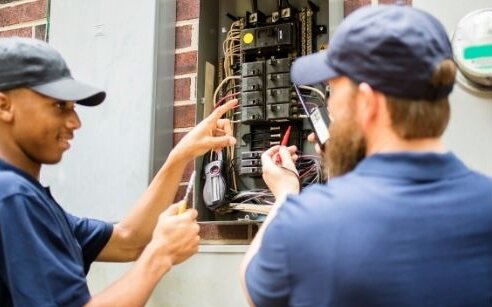As the weather heats up and routines shift, summer can bring both joy and challenges, especially for neurodivergent folks. From the overstimulation of busy beaches and loud events to the physical impact of heat, the season can be a lot to process. A neuroaffirming approach to summer means considering sensory needs, respecting individual rhythms, and adapting activities with compassion and flexibility.
1. Heat Sensitivity
Many neurodivergent people experience differences in interoception—how they feel and interpret internal body signals like hunger, thirst, or temperature. This can mean not noticing signs of heat exhaustion until it is serious. Add in the fact that some common medications (like stimulants or certain mood stabilizers) can make individuals more prone to dehydration or sun sensitivity.
Neuroaffirming tips:
- For neurodivergent folks: Set alarms or visual cues to remind yourself to seek shade and take regular hydration breaks.
- For allies: Remind your neurodivergent friends to seek shade and take regular hydration breaks. Avoid language that shames someone for needing a break. If someone needs to stay indoors during a heatwave, that is not avoidance—it is regulation.
2. Routines
Summer often disrupts routines—school is out, programs pause, and schedules shift. While this flexibility can feel freeing to some, it can also be disorienting or distressing to others.
Neuroaffirming tips:
- For neurodivergent folks: Create a summer schedule that provides structure without rigidity. Visual calendars, checklists, or daily activities (outside time, quiet time, etc.) can offer consistency while still making room for spontaneity. Incorporate hydration by using body-based reminders (e.g., drinking water before transitions).
- For allies: Ask before assuming and understand that routines might shift. Offer consistency where you can and avoid undue pressure to “go with the flow.”
3. Sensory Processing
Summer activities are often loud, crowded, and unpredictable. Fireworks, outdoor concerts, busy beaches, and parades can be overwhelming for anyone with sensory sensitivities. But summer also holds potential for sensory joy: swimming, hammocks, the smell of sunscreen, and cold watermelon on a hot day.
Neuroaffirming tips:
- For neurodivergent folks: Engage in activities that support regulation, like nature walks or crafts in a cool room. Wear comfy clothes and keep noise-cancelling headphones, fidgets, and sunglasses handy. Consider a personal handheld fan or ice packs.
- For allies: Plan for accessibility. When inviting someone to an event, mention the types of spaces and whether there is a quiet space available, frontload food options, and ask about sensory considerations. Make space for unmasking, alternate forms of communication, silence, or stimming.
4. Opting Out
Neuroaffirming care respects choice. Just because something is “fun” for most people does not mean it is right for everyone.
Neuroaffirming tips:
- For neurodivergent folks: You do not need to earn rest or justify your need to step away. Take breaks, take naps, take up space, and do things your way, even if it looks different from others. Practice self-compassion – the people who matter will meet you where you are.
- For allies: Celebrate differences out loud and do not just tolerate – affirm. Validate needs without guilt. Ask for input when planning outings or trips and offer parallel activities that may allow them to participate in their own way.
A neuroaffirming summer means recognizing that everyone experiences the season differently—and that is okay. By approaching summer with curiosity, compassion, and flexibility, we can help everyone access the season on their own terms.
– Becky Bishop, Senior Manager, Youth and Adult Programs
LDS is a community of dedicated professionals who write collaboratively. We recognize the contribution of unnamed team members for their wisdom and input.



